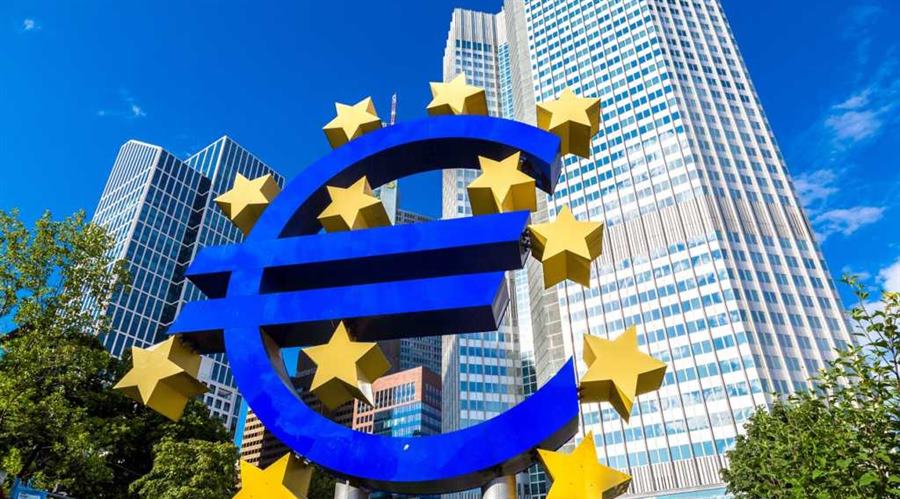
The European
Consumer Organization (BEUC) has filed a complaint with the European Commission
and consumer authorities against Instagram, YouTube, TikTok, and Twitter, for
facilitating ‘misleading’ promotion of cryptocurrencies.
In a report dubbed ‘Hype or harm? The great social media crypto con’, BEUC blamed the social
media platforms for promoting cryptocurrencies using advertisements and
influencers in what it termed ‘unfair commercial practice’ that exposes
investors to potential losses.
The complaint
follows lawsuits against top cryptocurrency exchanges, Coinbase
and Binance, by the US financial regulators and the collapse
of FTX in November last year. The loss suffered by investors from the
collapse of the Bahamas-based derivatives exchange is pushing the regulators to rethink how
to protect investors.
“Consumers
are increasingly being promised ‘get rich quick’ investments by ads and influencers
on social media,” BEUC’s Director General, Monique Goyens, said in the statement. “Unfortunately, in most cases, these claims are too good to be
true, and consumers are at a high risk of losing a lot of money without
recourse to justice.”
BEUC is asking
that the network of authorities mandated with enforcing EU consumer protection
laws, the Consumer Protection Cooperation Network, compel social media
platforms to impose strict rules on the advertisement of digital assets. In addition, the European consumer group is pushing for the adoption of measures to prevent
influencers from misleading the public about digital assets on social media. It also wants an
assessment by the European Commission on the effectiveness of consumer
protection on social media.
Moreover, BEUC emphasized the need for cooperation between the consumer groups in Europe and
the European Supervisory Authorities to ensure their
policies effectively protect consumers against misleading promotions of digital
assets.
The State of EU’s
Crypto Rules
According to BEUC,
neither the recently adopted European Union’s Markets in Crypto-Assets (MiCA) regulation nor the Digital Services Act (DSA), a separate regulation on illegal social
media content, protects consumers. The EU
passed MiCA in April as one of the most significant pieces of legislation
in the digital asset space.
“Crypto will
be regulated soon with the new Market in Crypto Assets Regulation but this
legislation does not apply to the social media companies benefiting from the
advertising of crypto at the expense of consumers,” Goyens noted. “This is why
we are turning to the authorities in charge of protecting consumers to ensure
Instagram, YouTube, TikTok and Twitter fulfil their duty to protect consumers
against crypto scams and false promises.”
BEUC’s complaint was
filed with the support of consumer groups in Denmark, France, Italy, Greece,
Lithuania, Portugal, Slovakia, and Spain.
Ex-CFTC chair joins Circle; Marqeta shuts Aussie office; read today’s news nuggets.
The European
Consumer Organization (BEUC) has filed a complaint with the European Commission
and consumer authorities against Instagram, YouTube, TikTok, and Twitter, for
facilitating ‘misleading’ promotion of cryptocurrencies.
In a report dubbed ‘Hype or harm? The great social media crypto con’, BEUC blamed the social
media platforms for promoting cryptocurrencies using advertisements and
influencers in what it termed ‘unfair commercial practice’ that exposes
investors to potential losses.
The complaint
follows lawsuits against top cryptocurrency exchanges, Coinbase
and Binance, by the US financial regulators and the collapse
of FTX in November last year. The loss suffered by investors from the
collapse of the Bahamas-based derivatives exchange is pushing the regulators to rethink how
to protect investors.
“Consumers
are increasingly being promised ‘get rich quick’ investments by ads and influencers
on social media,” BEUC’s Director General, Monique Goyens, said in the statement. “Unfortunately, in most cases, these claims are too good to be
true, and consumers are at a high risk of losing a lot of money without
recourse to justice.”
BEUC is asking
that the network of authorities mandated with enforcing EU consumer protection
laws, the Consumer Protection Cooperation Network, compel social media
platforms to impose strict rules on the advertisement of digital assets. In addition, the European consumer group is pushing for the adoption of measures to prevent
influencers from misleading the public about digital assets on social media. It also wants an
assessment by the European Commission on the effectiveness of consumer
protection on social media.
Moreover, BEUC emphasized the need for cooperation between the consumer groups in Europe and
the European Supervisory Authorities to ensure their
policies effectively protect consumers against misleading promotions of digital
assets.
The State of EU’s
Crypto Rules
According to BEUC,
neither the recently adopted European Union’s Markets in Crypto-Assets (MiCA) regulation nor the Digital Services Act (DSA), a separate regulation on illegal social
media content, protects consumers. The EU
passed MiCA in April as one of the most significant pieces of legislation
in the digital asset space.
“Crypto will
be regulated soon with the new Market in Crypto Assets Regulation but this
legislation does not apply to the social media companies benefiting from the
advertising of crypto at the expense of consumers,” Goyens noted. “This is why
we are turning to the authorities in charge of protecting consumers to ensure
Instagram, YouTube, TikTok and Twitter fulfil their duty to protect consumers
against crypto scams and false promises.”
BEUC’s complaint was
filed with the support of consumer groups in Denmark, France, Italy, Greece,
Lithuania, Portugal, Slovakia, and Spain.
Ex-CFTC chair joins Circle; Marqeta shuts Aussie office; read today’s news nuggets.
- SEO Powered Content & PR Distribution. Get Amplified Today.
- EVM Finance. Unified Interface for Decentralized Finance. Access Here.
- Quantum Media Group. IR/PR Amplified. Access Here.
- PlatoAiStream. Web3 Data Intelligence. Knowledge Amplified. Access Here.
- Source: https://www.financemagnates.com//cryptocurrency/european-consumer-group-slams-twitter-instagram-for-misleading-crypto-ads/
- :has
- :is
- :not
- a
- About
- Act
- addition
- adopted
- Adoption
- Ads
- Advertisement
- Advertising
- against
- also
- an
- and
- Apply
- April
- ARE
- AS
- assessment
- asset
- Assets
- At
- aussie
- Authorities
- banner
- BE
- being
- benefiting
- between
- but
- by
- cases
- Chair
- charge
- Circle
- claims
- Collapse
- commercial
- commission
- Companies
- complaint
- consumer
- Consumer Protection
- Consumers
- content
- cooperation
- crypto
- crypto scams
- crypto-assets
- cryptocurrencies
- cryptocurrency
- Cryptocurrency Exchanges
- Denmark
- Derivatives
- derivatives exchange
- digital
- Digital Asset
- Digital Assets
- digital services
- Director
- does
- dubbed
- effectively
- effectiveness
- emphasized
- enforcing
- ensure
- Ether (ETH)
- EU
- Europe
- European
- european commission
- european union
- exchange
- Exchanges
- facilitating
- false
- financial
- Financial Regulators
- follow
- follows
- For
- France
- from
- General
- get
- good
- great
- Greece
- Group
- Group’s
- harm
- High
- How
- HTTPS
- Hype
- Illegal
- impose
- in
- increasingly
- influencers
- Investments
- Investors
- IT
- Italy
- Joins
- jpg
- Justice
- Last
- Last Year
- Laws
- Lawsuits
- Legislation
- Lithuania
- losing
- loss
- losses
- Lot
- Market
- Markets
- Marqeta
- measures
- Media
- MiCA
- misleading
- money
- most
- Need
- Neither
- network
- New
- New Market
- news
- nor
- noted
- November
- of
- Office
- on
- ONE
- or
- organization
- passed
- pieces
- Platforms
- plato
- Plato Data Intelligence
- PlatoData
- policies
- Portugal
- potential
- practice
- prevent
- promised
- promises
- promoting
- promotion
- Promotions
- protect
- protect investors
- protecting
- protection
- public
- Pushing
- Quick
- recently
- regulated
- Regulation
- Regulators
- report
- Rich
- Risk
- rules
- s
- Said
- scams
- separate
- Services
- Shuts
- significant
- Slams
- Social
- social media
- Soon
- Space
- Spain
- State
- strict
- support
- that
- The
- their
- These
- this
- tiktok
- to
- today
- too
- top
- true
- Turning
- unfair
- unfortunately
- union
- us
- using
- wants
- was
- we
- What
- why
- will
- with
- without
- year
- youtube
- zephyrnet







